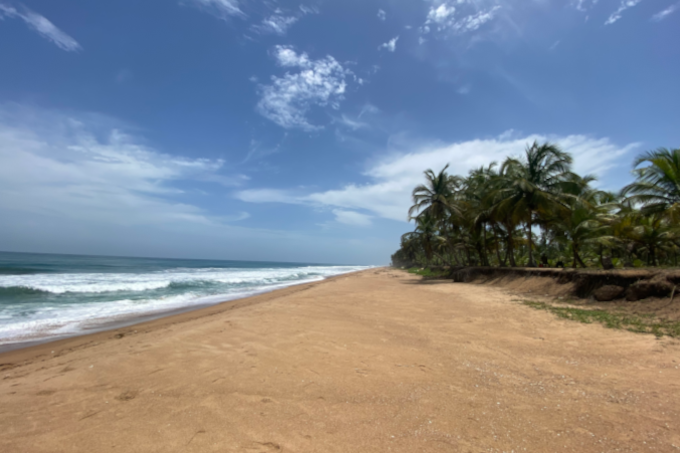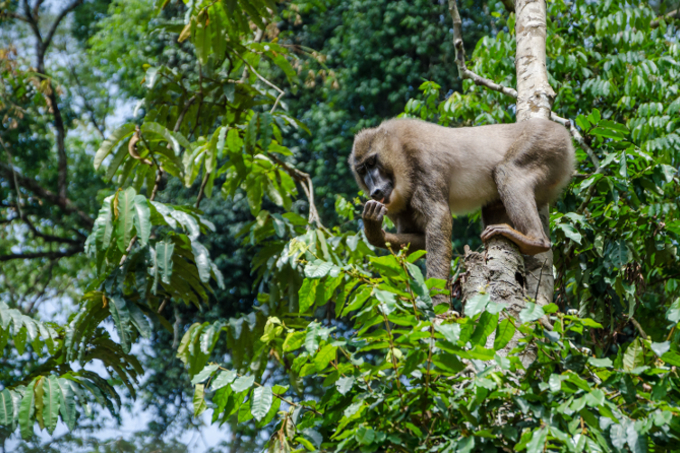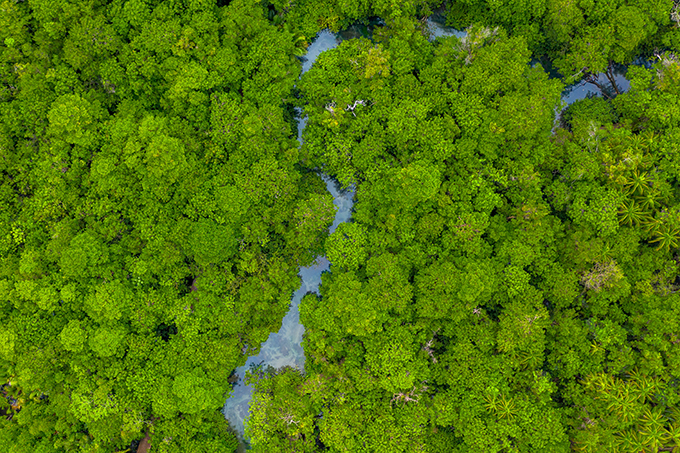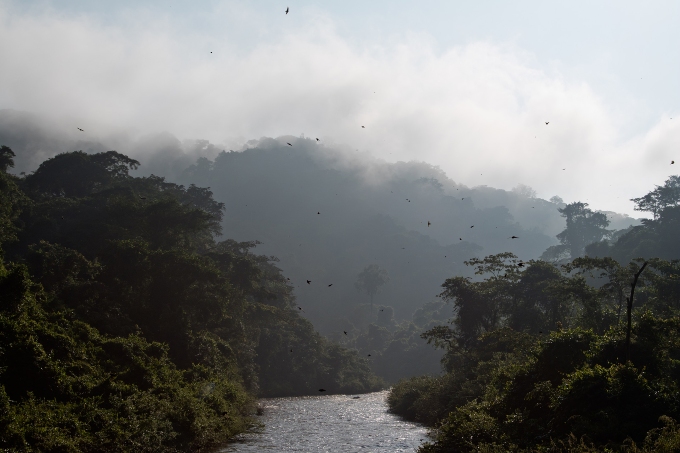Grain de sel: Mangrove conservation in Côte d'Ivoire
Women's empowerment and sustainable income in Azagny National Park
Established in 1981, Azagny National Park in the south of Côte d'Ivoire covers 2,850 hectares and includes a variety of ecosystems such as lagoons, mangroves, savannahs and forests. It serves as a habitat for numerous plants and animals, including endangered species such as African forest elephants, pygmy hippos and chimpanzees. Waterfowl and migratory bird species thrive in the wetlands of the national park. The surrounding area is home to various population groups and indigenous communities whose livelihoods are primarily based on fishing, agriculture and trade.
However, the climate crisis and increasing environmental pollution pose a major threat to Azagny National Park, its biodiversity and the livelihood of its people. Rising sea levels, erosion and longer rainy seasons are jeopardising settlements, while habitat loss and pollution are causing fish populations to shrink and the nets of fishing families to remain empty more and more often.
The mangroves growing in the national park play a key role in tackling these problems. They serve as important habitats for various marine and terrestrial animals, clean the waters and naturally counteract erosion. The project "Grain de sel" therefore raises awareness of mangrove conservation and educates people about their importance. At the same time, local community members, especially women, are being sensitised and trained in sustainable sources of income, such as salt extraction and beekeeping. This strengthens their financial independence and promotes ecological lifestyles in the region.
Our approach
Sustainable income opportunities and women's empowerment
The project supports women by producing salt sustainably in coastal areas. As sea salt production is a long-standing tradition in the coastal communities, the women were able to establish the business quickly. A pilot study on salt production using solar energy is intended to promote independence from fossil fuels.
Beekeeping is also being promoted, which both strengthens the region's biodiversity and generates sustainable income for the communities. For this purpose, a training centre for beekeeping is being set up as part of the project.
These activities promote the financial autonomy of local communities and especially of women, while at the same time protecting the region's natural environment.
Mangrove protection and environmental education
As part of the project, an environmental education centre will be set up to raise awareness of the importance of nature in the national park, particularly the mangroves, and to help reduce pollution in the region. The aim is to mobilise people for mangrove and nature conservation and to inspire them to adopt sustainable lifestyles.
Strengthening of local cooperatives
The project supports local cooperatives that produce attiéké, a speciality in Côte d'Ivoire, that is traditionally made from fermented cassava roots. The aim of strengthening the cooperatives is to improve their competitiveness and the profitability of production, thereby promoting sustainable income and financial independence.
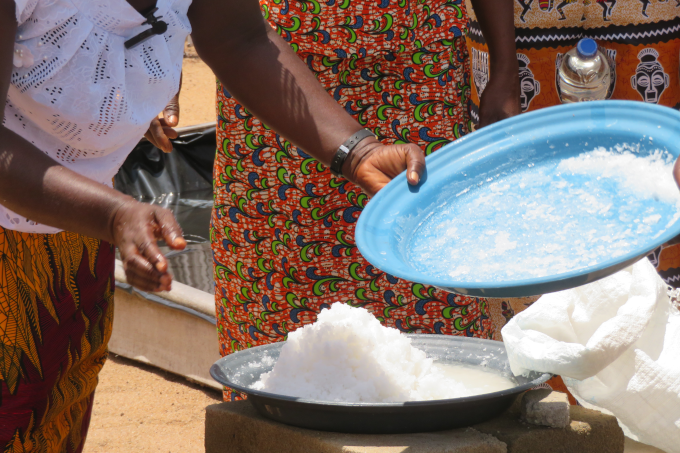
Grain de Sel: Natural salt production - photo: NABU
Project facts
Project title
Grain de sel: Support program for mangrove conservation with riparian community enterprises in Azagny National Park (Côte d’Ivoire)
Country / Region
Côte d'Ivoire, Azagny National Park
Period
July 2023 to December 2025
Partners
SOS-Forêts
Sponsored by / Supported by
The Nature and Biodiversity Conservation Union (NABU) e.V.
With this project we are contributing to the following SDGs
1, 6, 11, 12, 13, 14, 15, 17
MORE
Iko Esai in Nigeria, Africa, is home to precious tropical rainforest and extraordinary biodiversity, including gorillas, chimpanzees and forest elephants. In collaboration with local communities and partners, NABU protects the forest and secures livelihoods. more →
The protected area Mahavavy-Kinkony in Madagascar suffers from degradation of its coastal ecosystems. NABU and ASITY Madagascar joined forces supporting communities for restoring ecosystems, improving livelihoods and responding to the impacts of climate change. more →
Degradation of highland forest landscapes of South Ethiopia is a serious threat to livelihoods and biodiversity. NABU is engaged with the goal of preserving the forests of Bench-Sheko, Kafa & Sheka as carbon sinks and long-term ecosystem service suppliers. more →

